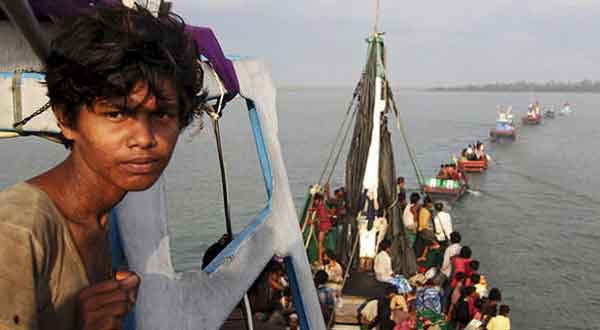A human rights group is calling on Bangladesh’s government to abandon plans to relocate Rohingya refugees to a small, uninhabited island said to be at severe risk of serious flooding.
Human Rights Watch said in a report Monday that international experts have identified six sites near the existing camp housing about 700,000 Rohingya refugees from Myanmar that could provide better and safer conditions and could accommodate more than a quarter of a million people.
The New York-based organization said Bangladesh’s government plans to move 100,000 people to Bhasan Char island very soon, but warns that — quite apart to its susceptibility to inundation — its isolation and the lack of assurance of freedom of movement would turn it into a de facto “immigration detention center.”
The right watchdog stressed, however, that the Rohingya refugees should be relocated, citing over-packed camps.
“What this means with people packed so closely together, particularly if this is going to last longer and longer, is it’s an incubation for contagious disease, for social dysfunction, domestic violence for example, and things like fire,” Bill Frelick, refugee rights director at Human Rights Watch, told reporters in Bangkok at the launch of a new report on conditions in the camps.
The average space in the mega-camp section of Cox’s Bazar is 10.7 square meters per person, compared to a refugee camp standard of 45 square meters per person, according to the report, which is based on dozens of interviews with Rohingya, officials, NGOS and U.N. agencies in May.
“Immediately what is needed is relocation,” he added, citing additional risks of landslides during the monsoon season.
Human Rights Watch said it has identified six feasible sites in a subdistrict that could accommodate 263,000 people.
Other recommendations were for authorities to provide Rohingya with legal refugee status, allow more freedom of movement, create better access to education and build cyclone shelters.
The report called for greater contributions from donor governments, agencies and NGOs to help improve conditions. It said an appeal for $136.6 million for shelter and non-food items was only 14 percent funded as of last month.
The U.S. and U.N. have branded operations by Myanmar security forces as ethnic cleansing. Rohingya have recounted widespread rape, murder and torture while being driven out of their villages, hundreds of which were razed to the ground.





